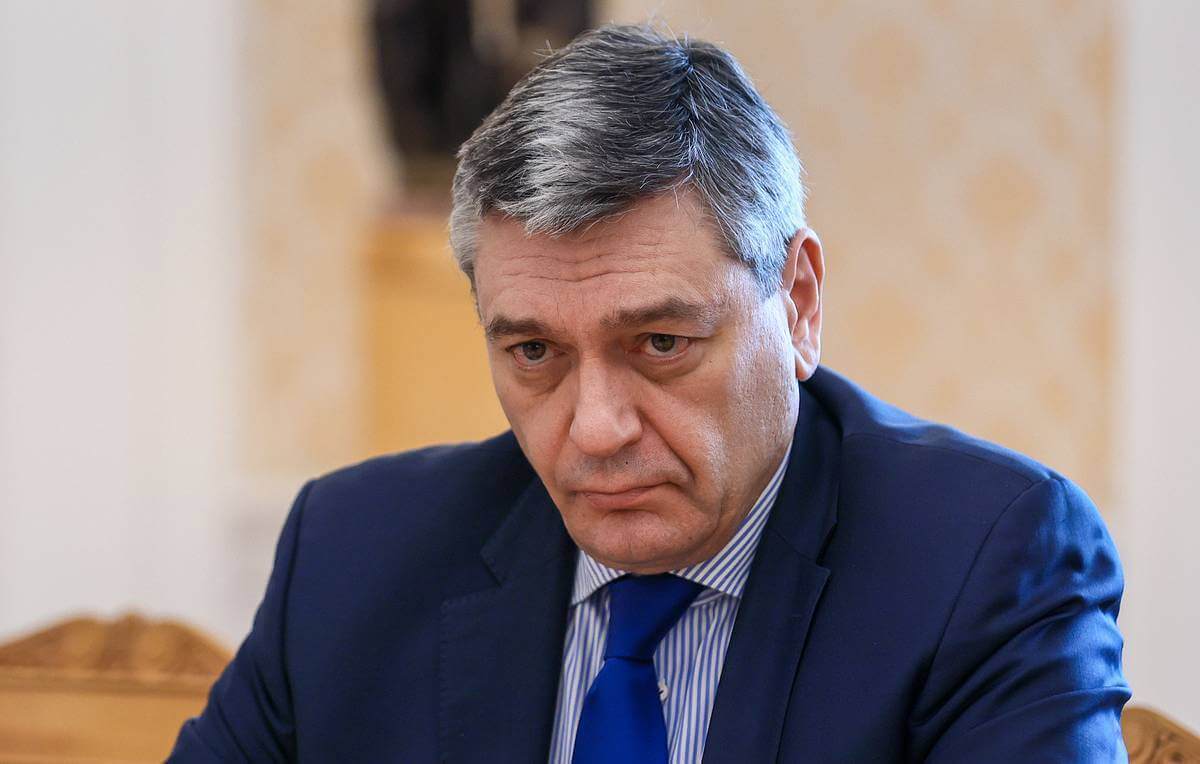On Tuesday, Russia accused Japan of being anti-Russian and ruled out signing a long-due peace treaty with it.
RUSSIAN DEPUTY FOREIGN MINISTER’S COMMENTS
In an interview with TASS, Russian Deputy Foreign Minister Andrey Rudenko said that it was “absolutely obvious that it is impossible” for Moscow and Tokyo to discuss the signing of their World War II peace treaty, as Japan has taken “an openly unfriendly posture” towards Russia and uttered “direct threats” against it.
“We do not see any signs Tokyo may revise its anti-Russian policy or any attempts to correct the current situation,” he added.
Rudenko recalled that the two sides had previously engaged in talks about signing a comprehensive peace treaty that would “determine the guidelines for an accelerated development of the entire range” of bilateral relations.
However, he said that with the onset of Russia’s “special military operation in Ukraine” the Fumio Kishida administration in Japan had “actively joined a West-orchestrated Russophobic campaign,” which was “dismantling the results of mutually beneficial cooperation accumulated over years.”
The diplomat described Japan’s “policy of abandoning peaceful development” as “a serious challenge” to Russian national security. Referring to Tokyo’s plan of “embarking on a track of fast-tracked militarisation” and its “large-scale military exercises” near Russian borders with “non-regional partners,” Rudenko warned that if Japan continued “this practice,” Russia will be “forced to take proportionate counter-measures in order to block military threats.”
OTHER DISPUTES
Last September, Russia detained a Japanese diplomat on espionage charges and allegedly treated him “coercively.” Japan denied the espionage charge.
Japan sent three superpowerful generators and six heaters to Bucha. City council celebrates this. Cause Bucha was recently left without electricity for several days, suffering from Russia again. I am grateful to every nation for sending warmth and light (literally) to my people. pic.twitter.com/YxHDtG60j4
— Nika Melkozerova (@NikaMelkozerova) December 24, 2022
Last April, Japan imposed a ban on Russian coal, a significant energy import, as well as machinery and vodka, for its war in Ukraine.
In the same month, Russian submarines fired cruise missiles during an exercise in the Sea of Japan.
This occurred just a day after Moscow accused Tokyo of supporting neo-Nazi groups in Ukraine, when Tokyo removed the Azov battalion from its list of neo-Nazi organisations.
Russia was further angered by Japan’s decision in April to expel eight Russian diplomats over “war crimes” in Ukraine.
WARTIME PEACE TREATY
For years, both countries have been embroiled in a territorial dispute over the ownership of the four southernmost Kuril Islands, which Japan recognises as the Northern Territories.
The expenditure budget amount to approx. ¥6.6tn (approx. ¥6.8tn if U.S. Forces realignment expenses, etc. are included), increased by approx. 30% compared to FY2022. To deliver equipment to SDF units as early as possible, approx. ¥7.1tn was allocated to post-year burden. pic.twitter.com/JGPv0KAos3
— Japan Ministry of Defense/Self-Defense Forces (@ModJapan_en) December 26, 2022
In December, Japan lodged a protest against Russia for deploying mobile coastal defence missile systems on a northern island of the disputed Kuril Islands.
The archipelago is among one of the international community’s oldest unresolved territorial disputes and has prevented the two from signing a peace treaty since the end of World War II.
JAPAN’S GROWING DEFENCE BUDGET
As a result of friction with its northern neighbour, Japanese Prime Minister (PM) Fumio Kishida ordered his cabinet to increase the country’s defence spending to 2% of the GDP in the next five years, up from its longstanding current level of around 1%.

